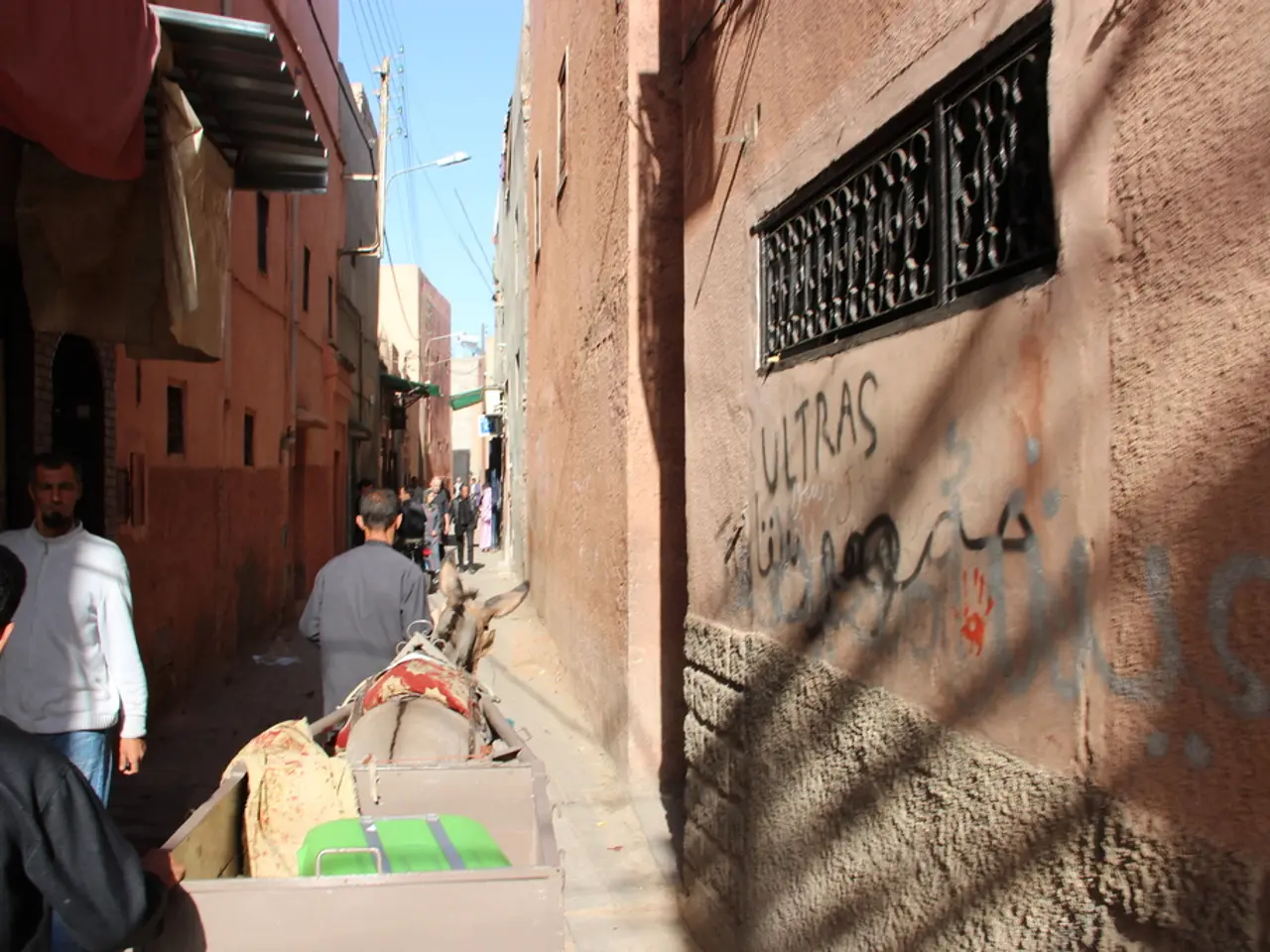Criticism from abroad over Israel's Gaza strategies
The international community has expressed strong criticism towards Israel's plans to seize Gaza City, with the United Nations, European allies, and regional mediators raising concerns over the potential humanitarian and legal implications.
United Nations
In response to the escalating conflict in Gaza, the UN Security Council has been prompted to hold an emergency meeting. The Council's meeting, scheduled by Panama (the council president), aims to seek ways to halt further escalation amid a mounting humanitarian crisis. The UN and humanitarian agencies stress the urgent need for unrestricted humanitarian access to Gaza due to dire conditions.
European Allies
European governments have offered strong condemnation. France condemned the plans in the "strongest possible terms," opposing occupation of Gaza and forced displacement as violations of international law and dangers to regional stability. Germany similarly rejects annexation or forced removal of Gaza residents as unacceptable, while calling for Hamas to release hostages and cease terrorism. The European Commission President, Ursula von der Leyen, urged reconsideration of Israel’s military escalation, demanding immediate humanitarian access, and calling for a ceasefire.
However, the EU faces internal divisions. Some member states support Israel firmly, while others advocate diplomatic pressure to halt hostilities. The EU foreign policy chief has proposed punitive measures over Israel’s alleged violations, but these have not yet advanced.
Regional and Middle Eastern Mediators
About 20 Arab and Muslim countries, including Egypt, Saudi Arabia, and Turkey, labeled Israel’s plan a "dangerous escalation" and a "blatant breach of international law." These countries accuse Israel of attempting to entrench its occupation of Gaza and violating international legitimacy. They warn the plan exacerbates the humanitarian crisis and undermines Palestinian aspirations.
Additional Context
The Israeli military has officially approved the operational framework for the offensive aimed at Gaza City, with the government yet to announce exact timing. Hamas condemns these moves as aggressive incursions with scorched-earth impacts on civilian areas.
The US, Israel’s closest ally, did not support the UN Security Council emergency meeting request, signaling a divergence in the international community.
In summary, while Israel proceeds with military plans to seize Gaza City, the UN, most European allies, and regional actors widely condemn the effort as escalation risking serious humanitarian harm, violations of international law, and destabilization of peace prospects. The issue remains a focal point of intense diplomatic activity, but divisions persist, especially regarding US and Israel positions. The Qatari Ministry of Foreign Affairs believes the planned offensive poses a dangerous escalation and threatens to further exacerbate the humanitarian crisis in the Gaza Strip. The Palestinian Authority (PA) should play a central role in any future government in the Gaza Strip.
- The United Nations Security Council, in light of the emergency meeting scheduled by Panama, has expressed concern over Israel's plans to seize Gaza City, stressing the urgent need for unrestricted humanitarian access due to the dire conditions and potential humanitarian crisis.
- In response to Israel's plans, several regional mediators, including Egypt, Saudi Arabia, and Turkey, have denounced the moves as a violation of international law and a dangerous escalation, warning that it exacerbates the humanitarian crisis and undermines Palestinian aspirations for peace.






